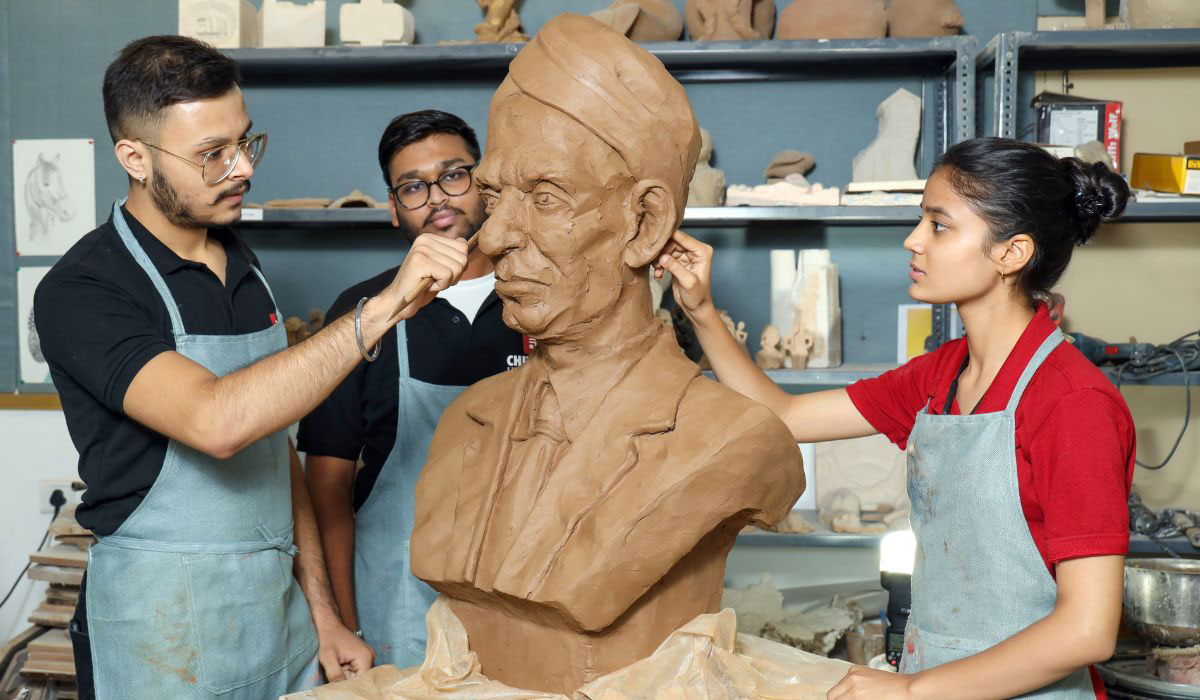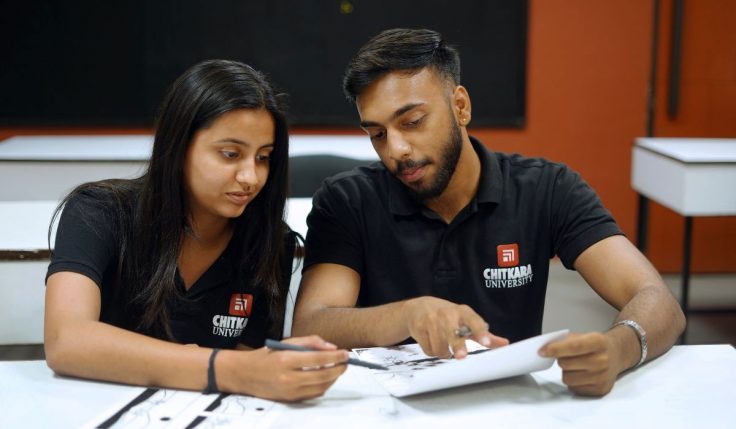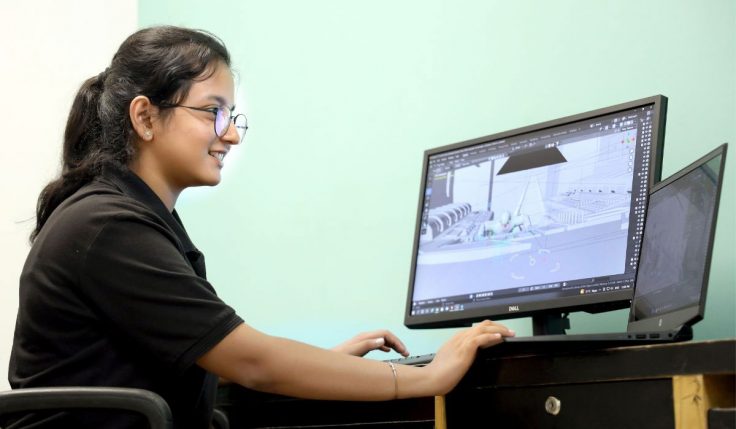Fine arts is a world where creativity thrives, self-expression has no limitations, and imagination reigns supreme. If you’re thinking about a career in the fine arts, you’re going on a fascinating journey that offers benefits that go beyond typical academic courses. In this article, we’ll look at the many advantages of a fine arts education, and why earning a fine arts degree can be a fulfilling and transformational experience for aspiring artists.
Unleashing Creative Freedom: Fine arts education is a haven for creative spirits. It enables you to discover your own artistic voice, giving you the freedom to experiment, take chances, and push limits. Fine arts, unlike many regulated programs, give a free canvas for self-expression. This independence encourages invention and assists artists in developing a distinct style that distinguishes them in the competitive art market. Students can experiment with a variety of artistic materials and methods, ranging from classic painting and sculpture to digital art and mixed media projects.
Cultivating Critical Thinking: Fine art is more than simply making visually appealing works; it is also about communicating ideas, feelings, and concepts via imagery. As you evaluate, interpret, and synthesize facts to produce meaningful art, you will strengthen your critical thinking abilities. These cognitive talents are transferable outside of the studio and may be used to solve problems in a variety of life and job scenarios. Students in the fine arts learn to examine, evaluate, and revise their work, cultivating a culture of constant progress and intellectual curiosity.
Embracing Versatility: Painting, sculpture, drawing, printing, photography, ceramics, and digital art are all available in a fine arts curriculum. This adaptability allows you to experiment with many materials and approaches, extending your artistic horizons. In a world where transdisciplinary talents are highly valued, such flexibility is priceless. Fine arts students frequently explore with many mediums, helping them to discover their individual artistic talents and preferences.
Expressing Cultural Narratives: Fine arts may be used to tell cultural, social, and political stories. You may highlight critical topics, question standards, and celebrate diversity via your work. This capacity to connect with societal concerns not only broadens your awareness but also adds to significant debates inside and beyond your community. Students in fine arts programs are frequently encouraged to investigate their cultural history and utilize their work as a means to shine light on current societal issues.
Enhancing Emotional Intelligence: Creating art often involves delving into your own emotions and understanding those of others. This process fosters emotional intelligence—a crucial skill in interpersonal relationships and empathy. Fine arts education encourages you to tap into your feelings, making you more in tune with yourself and the world around you. The ability to convey complex emotions and experiences through art is a hallmark of fine artists and allows them to connect with audiences on a profound level.
Building a Portfolio: As you progress through a fine art program, you’ll assemble a diverse portfolio showcasing your growth and mastery. This portfolio becomes your calling card, essential for gaining admission to art schools, attracting gallery representation, or securing commissions. It’s a tangible testament to your artistic journey and evolution, highlighting your skills, artistic vision, and dedication. Fine art portfolios often feature a wide range of projects, from traditional pieces to experimental works, demonstrating an artist’s versatility and creative evolution.
Exploring Career Opportunities: Contrary to the stereotype that fine arts leads only to a life of struggling artists, a fine art degree opens doors to various career paths within and beyond the art world. While some fine arts graduates pursue careers as practicing artists and exhibit their work in galleries, others explore avenues such as art education, art therapy, museum curation, graphic design, illustration, and even art conservation. The skills developed in a fine arts program, including creativity, critical thinking, and visual communication, are highly transferable and sought after by employers in various industries.
Networking and Exposure: Fine arts programs often involve collaborations, exhibitions, and interactions with renowned artists, critics, and curators. These opportunities provide invaluable networking and exposure, which can catapult your career to new heights. Establishing connections within the art world can lead to exhibitions, commissions, and mentorships. Fine arts students have the chance to showcase their work in galleries, participate in group exhibitions, and engage with established artists and professionals. These experiences not only expand your artistic horizons but also introduce you to potential mentors and collaborators.
Personal Fulfillment: Ultimately, fine arts education is about personal fulfillment and self-discovery. It’s a journey of continuous growth, where you learn not only about art but also about yourself. The satisfaction of creating something beautiful or thought-provoking is unparalleled and can be a lifelong source of joy. Fine arts allow you to explore your identity, passions, and values, making it a deeply personal and transformative experience. Whether you create art for personal enjoyment or to share your vision with the world, fine arts education offers a path to personal fulfillment and self-expression that goes beyond the confines of traditional education.
Read this blog post: Why a Fine Arts Education is More Valuable Than You Think
Finally, the advantages of a fine arts education are as varied and as unique as the artists themselves. A fine art degree will offer you with skills, information, and experiences that will take you well beyond the studio, whether you want to be a painter, sculptor, computer artist, or creative creator. It’s a road of self-expression, intellectual growth, and cultural contribution—a path that fosters creativity and prepares you to leave a lasting impact on the world via your work. If you are passionate about art and desire a meaningful and engaging educational experience, consider embarking on this transformative road of fine arts education. The world is your canvas, and your creativity is infinite.
Chitkara University’s fine arts programs empower emerging artists by providing a comprehensive curriculum, competent teachers, and cutting-edge facilities. The institution supports creative expression and offers several chances for students to display their work and interact with renowned artists through guest lectures and workshops. Chitkara assures that fine arts graduates are well-prepared for success in the art world, whether as active artists, educators, or workers in art-related businesses, with an interdisciplinary approach and a focus on career advice. The university’s devotion to research, innovation, and worldwide exposure strengthens the educational experience, transforming Chitkara into a hotspot for developing artistic talent.






